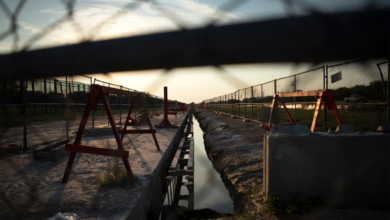Small Issues That Could Affect 2020 Elections In Texas
By, George Willer | Special To Corridor News
As was demonstrated by the Beto O’Rourke campaign during the 2018 midterms, state politics throughout the United States are increasingly national in nature.
Regardless of his specific positions and party affiliation, O’Rourke appears to be a rare political talent, and modern media will naturally amplify such a figure’s presence on the national stage, so perhaps he’s an extreme or at least unusual example.
Nevertheless, he speaks to an intensifying reality in America, which is that for the right state race, the whole country will tune in.
Accordingly, we should probably get used to people running for state and local officials taking strong stances on national issues, and for these issues to dominate races.
It stands to reason that come 2020; these are certainly the issues we’ll hear most about, not just in the presidential election to come, but up and down the ballot and all across the state.
Candidates of all kinds will be judged for how they’ve handled the Trump administration, how they feel about border security, what their economic priorities are, and, particularly following the latest effort to thwart the Affordable Care Act, what their positions on healthcare are.
This is simply the reality these days; a candidate running for mayor in a Texas town might be asked about his feelings on another state expanding Medicare, and a state senate candidate in Kansas will likely be drilled on border security. So it goes, in 2018.
Even as we recognize all of this though, it is up to us, and to communities all around the country, to be aware of smaller and more local issues as well. Because while things like healthcare, immigration, and security may be brightest on the national radar, communities still have their own concerns also.
It’s for this reason that I wanted to take a quick look at some potential smaller issues that might be somewhat polarizing in Texas in 2020, and which could conceivably contribute to swaying some close elections. (Note: this is not to say these issues are “small” – they just don’t tend to register as loudly as the prevailing national concerns.)
Call them mini-swing issues for 2020, if you will….
Voter Registration
Perhaps this is an unusual place to start because voter registration is not a very small issue. The public and candidates as well are more and more concerned with the fairness of our voting system, and this could be on its way to becoming a hotly contested national debate. For now, though it tends to remain somewhat localized.
In a race like the recent one for the Georgia governorship, where voter fraud and election meddling become matters of discussion, voter registration can be highlighted. In the vast majority of state and local elections though, it’s more or less an afterthought.
The reason it could be an issue to watch in Texas in 2020 though is that several state Democrats are making a push for various measures that would make voting easier.
A coalition of democrat representatives are angling for online voter registration, and others are seeking to make driver’s license issuances serve as automatic registration, or make student I.D. valid as voter I.D.
It will be interesting to see how Republicans respond to these efforts leading up to 2020, and whether accessibility to voting actually becomes a legitimate swing issue, as could certainly be the case.
Betting Legalization
Betting on sports and other public events is allowed to be legalized state by state now, and with several having gotten on board it’s likely to be on the table for Texas by 2020. And interestingly enough, it’s not a proven red or blue issue.
Some House Republicans have supported legal, regulated betting, and some Democrats have enacted the actual legislation. One could certainly imagine some within the religious right opposing it on moral grounds, but this sort of opposition hasn’t emerged yet, at least in any organized fashion.
This could ultimately be one of the few issues that is case-by-case between individuals, rather than starkly red versus blue.
The argument though will be economic. Right now, one need only look abroad where betting is legal to see what a massive business it can become. In the UK, for instance, individual sporting events can cause millions to change hands. Take the Cheltenham Festival for an example, given that it’s one of the country’s most prominent horse racing events, and is essentially made for betting.
Per a guide to the event, it offers a “betting bonanza” played out through a whole category of websites devoted to providing odds. Some measurements have gauged the activity for this single, four-day sporting event at hundreds of bets per second. That’s a whole lot of money changing hands, and this will be the argument in favor of legalization.
Marijuana Legalization
The other issue that’s strictly about legalizing and regulating what is not currently legal is marijuana use. Slowly but surely, marijuana is being legalized across swaths of the U.S., either for medical use, recreational use, or in some cases both.
With a majority of popular studies supporting the notion that there’s nothing directly harmful about marijuana, as well as more and more pieces being written about its myriad benefits, arguments about its being a gateway drug appear to be losing the battle.
Generally, this is more of a red versus blue battle, with Republican politicians typically being against legalization, and Democrats more and more frequently for it.
However, the liberal side of the issue has gained ground in Texas. It was viewed as a fairly major development this past summer when, as profiled by Forbes, the official Texas Republican Party endorsed decriminalizing the drug, and polls show more than half of the Texas public supporting legalization of some use.
However, there are still prominent politicians, mostly on the Republican side, who oppose it – most notably Senator Ted Cruz and former Rep. Pete Sessions (who was ousted in the midterms by Colin Allred). Undoubtedly, the issue will be a factor in some 2020 state races.
Driverless Cars
Driverless cars, and how we regulate them on public roads, may well become a major national issue in the next decade. Thanks in large part to Tesla leading the charge, there are now numerous vehicles with some level of “autopilot” functionality, and we’re still in the early days.
It’s a reasonable assumption that five more years from now most newly manufactured cars will be able to drive themselves, possibly completely.
It’s an exciting idea and one many people, regardless of party affiliation or political ideology, will embrace. It also comes with a lot of compilations though, with some believing we’ll essentially have to rethink road designs and traffic laws entirely.
This is a fairly balanced issue in that both parties like it for different reasons. Governor Abbott actually signed a bill in 2017 allowing driverless cars to operate on Texas roads just last year and did so seemingly in the hopes of bringing related businesses into Texas. In other words, it’s an economic play.
A healthy number of Democrats, meanwhile, support driverless car technology not only because of the economic opportunity that comes with it but because of the accompanying energy efficiency and its positive effect on the environment.
So again, this is not a strict red versus blue issue – but it’s one that could be among the smaller matters contested between any given candidates in 2020.






